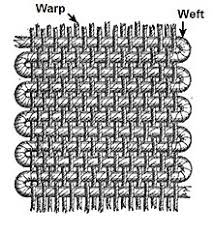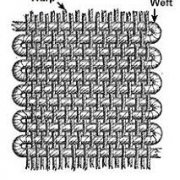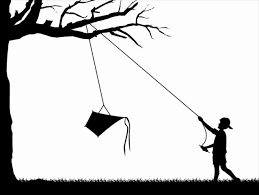MONTHLY BLOG 130, MEANINGS OF BEING PENELOPE
If citing, please kindly acknowledge copyright © Penelope J. Corfield (2021)

|
Fig.1 A swatch of weaving, |
It’s a great name, Penelope. English. Greek. And very international. Recognised everywhere. Can be used in long majestic form. Or abbreviated into Penny, Pen, or P. It’s not too commonly used. Yet it’s very far from unknown, either.
In Greek myth, the foundational Penelope is the wife of the travelling Odysseus (Ulysses). She remains at home, weaving and waiting. And rejecting the many suitors for her hand. So the name has connotations of a woman of sexy desirability, who has great patience and perseverance while sticking at her own work, allied to a good knowledge of her own mind, and a degree of cunning in eventually getting what she wants. For me, a most attractive mix.
Perhaps British wives, waiting at home for their husbands to return from the Second World War, had visions of themselves as Penelope? Certainly a considerable number of baby daughters were then given that name. For instance, in 1940 the celebrated actor Penelope Keith was born in Sutton, to the wife of a serving army officer; and in 1946 her fellow actor, the admirable Penelope Wilton, was born in Scarborough, North Yorkshire. Whereas the name has become comparatively less common since then. The much-lauded Spanish film actor Penelope Cruz (b.1974) is a notable exception. And, of course, there are others, especially in Greece. Nonetheless, when I meet fellow Penelopes these days, there is a strong chance that we will all be post-WW2 baby boomers.
Interestingly, in Britain after the First World War, numerous baby girls were named ‘Irene’ – meaning peace. My mother (b.1919) was one of them. So it obviously seemed natural to her, after yet another grinding war, to reach for an expressive Greek name. During the fighting, she worked on the home front, deciphering captured letters for Military Intelligence, and dodging incendiary bombs on London. But her memories were chiefly of the anxiety of waiting for my father to return from active service in North Africa and Italy. So Penelope!
As a youngster, I was invariably known as Penny – and was happy enough to be teased about turning up like a ‘bad penny’; or, when I was naughty, being called ‘penny dreadful’. Such usages are broadly affectionate. And, with a long name in reserve, I never felt purely defined by the diminutive form.
Moreover, as I began to teach and then to publish, I realised the great advantage of having a public persona, which I can use alongside my private identity. These days I use Penelope daily – and some people address me only by that name. I positively enjoy it, though I would not have done when younger.
Furthermore, there is one metaphorical usage, which I do especially relish. The term ‘Penelope’s web’ refers originally to the shroud that the mythic Penelope weaves daily and unpicks secretly by night – thereby delaying a decision as to which of her suitors to choose. (They were not very bright and failed to see through her ruse, which she sustained for years). Penelope’s web can therefore simply refer to a major work which is always in progress and never done. (Ouch! Too many authors know that syndrome). Yet it is also used metaphorically for global history. That is a colossal work, which is always in progress, always being unpicked by critical historians, and then rewoven by others. As one of that tribe, I am proud to contribute to Penelope’s web.
By the way, I don’t feel any proprietorial interest over any other aspects of the mythology, though I admire both the academic deliberations1 and the contemporary retellings.2 Did Penelope secretly have sex with all 108 of the faithful suitors, giving birth to an illegitimate son Pan? (as some versions suggest). I don’t know and don’t mind one way or the other. Did Penelope look on with blood-thirsty glee when Odysseus/Ulysses returned and slaughtered all the importunate suitors and her twelve loyal handmaids as well?3 I never knew about such details as a child, so had no idea that there were moral complexities in the story (as in global history, of course). To me, Penelope was/is simply a name of serenity and potency.
But I did discover, with time, one complexity of my own. From childhood, I was trained to write my short name as ‘Pene’: literally one half of Penelope. I view ‘Penny’ as a close variant, but not actually referring to me. However, then I met some Spaniards. They were highly excited to meet a woman named ‘Penis’. For a while, I simply laughed. After all, plenty of men manage with the penile nick-names: ‘Dick’, ‘John Thomas, or ‘Johnson’, without exciting wild mirth. However, in my case the cross-gender dimension seemed to be too much. Soon I got bored with the kerfuffle, especially as my range of international contacts grew. Now I try to keep ‘Pene’ strictly for use between very old friends and family. I sign emails with the initial: P. And to the wider world, I’m very happily known as Penelope – a lovely Greek name with hidden depths.
ENDNOTES:
1 See e.g. M.A. Katz, Penelope’s Renown: Meaning and Indeterminacy in the Odyssey (Princeton, NJ, 1991); M. Janda, Odysseus und Penelope: Mythos und Namen (Innsbruck, 2015).
2 See esp. M. Atwood, The Penelopiad (2007).
3 Christopher Rush’s novel Penelope’s Web (Edinburgh, 2015) confronts the dramas and moral dilemmas both of her husband’s twenty-year absence and of his homecoming.
For further discussion, see Twitter
To read other discussion-points, please click here
To download Monthly Blog 130 please click here





